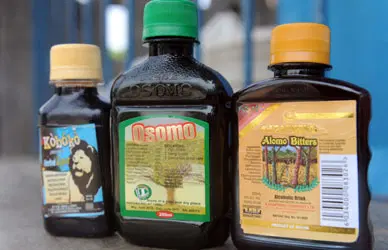“Sex sells” is a well-worn adage in the realm of advertising. Salesmen have long relied on sexual gimmicks as a means to grab public attention. Perhaps no product exemplifies this more than the popular prescription medicine known as Viagra.
In the late 1990s, during clinical trials for a drug developed for hypertension and chest pain, researchers from Pfizer, an international pharmaceutical company, noticed a surprising fact: that the medication also induced erections as a side effect.
Upon this discovery, the company immediately pivoted, repositioning the pill as the first oral treatment for erectile dysfunction.
Viagra became a sensation almost overnight. In its first year on the market, it racked up a staggering $1 billion in sales, becoming one of the fastest-selling drugs in history.
Pfizer’s remarkable coup increased awareness of sexual wellness and sparked a boom in the global sex industry. The clandestine and illegal operations—such as human trafficking—make it difficult to estimate the value of the industry today.
Nigeria’s shifting sex culture
In Nigeria, sexual awareness has expanded just as fast. Discussions that once bordered on the fringes have spilt into the mainstream.
Alongside this shift, a cottage industry of self-styled sex doctors has flourished, hawking sex enhancers, stimulants, creams and gels that promise everything from longer-lasting erections to vaginal tightness.
Unlike regulated pills that require a prescription, these local sex stimulants are marketed mostly by word of mouth—and at a relatively cheap cost.
Many are said to be made from plants with purported aphrodisiac properties. Consider, for example, Kayan Mata, a traditional aphrodisiac that originated in northern Nigeria. Translated literally as “women’s properties,” Kayan Mata has a long history of use for enhancing women’s sexual health.
Kayan Mata was traditionally made from a base of honey, tiger nuts and roots, but a growing demand over the years has led to its adulteration.
On Instagram reels and TikTok clips, these herbal concoctions are promoted as a cure-all for sex-related problems. To stoke the hype even further, the drugs typically bear suggestive names along with imagery of hyper-masculinity.
Risky pleasure
A huge volume of these aphrodisiacs are also shipped from overseas. In the first quarter of 2025 alone, five containers of sex-enhancement drugs, along with other prohibited pharmaceuticals, were intercepted at a Lagos port. Regulators valued the seizures at N921 billion. One container was reportedly filled with over 1400 packages of unregulated products branded as “plus big booty tablets.”
Amidst the influx of these unregulated sexual stimulants on the market, public-health officials have cautioned about their growing hazards, such as recurrent infections, cardiac complications and kidney failure.
A growing body of research has linked challenges with sexual performance to physiological reasons. Sex therapists recommend simple remedies such as Kegel exercises and healthy dieting.
Despite the associated risks, demand for sex stimulants remains high. There’s no public data available on their consumption in Nigeria because most of them are unregistered. Many new brands—some condensed into sachets—line shop shelves without NAFDAC approval.
Indeed these stimulants thrive off a culture where sexual performance is placed on the same pedestal as financial stability.
In Nigeria, the bedroom is considered the arena where a man’s virile strength is put to the test. If he reaches orgasm too quickly, his sense of self drops significantly. By contrast, a woman fears losing her husband to other women if her vagina has no grip.
On X, anonymous confessions about poor sexual performance routinely draw ridicule. Many users recommend dubious mixtures as solutions.
This insecurity and public shaming drives Nigeria’s underground market for aphrodisiacs, leaving many susceptible to a litany of health risks.
If past salesmen realised that sex sells, today’s marketers have discovered that good sex sells even better.
The concept of "sex sells" is evident in the marketing of Viagra, originally developed for hypertension, which became a lucrative product for Pfizer after it was repositioned as an erectile dysfunction treatment. Its success sparked greater awareness of sexual wellness and boosted the global sex industry. In Nigeria, discussions about sex have become mainstream, nurturing a market for local sex enhancers like Kayan Mata, often unregulated and sold cheaply through word-of-mouth. These stimulants promise various sexual benefits but pose health risks like infections and organ damage, especially since many are unapproved by regulatory bodies.
Despite these risks, the demand for sex stimulants in Nigeria remains high due to social pressures around sexual performance. Products are widely available, even without official approval, and promote the notion of heightened sexual prowess and attractiveness. The underground market thrives as individuals seek solutions to performance insecurities, further perpetuating the cycle of health risks. The narrative has shifted: while sex sells, good sex sells even better, driving both legitimate and dubious markets focused on sexual health and performance.






